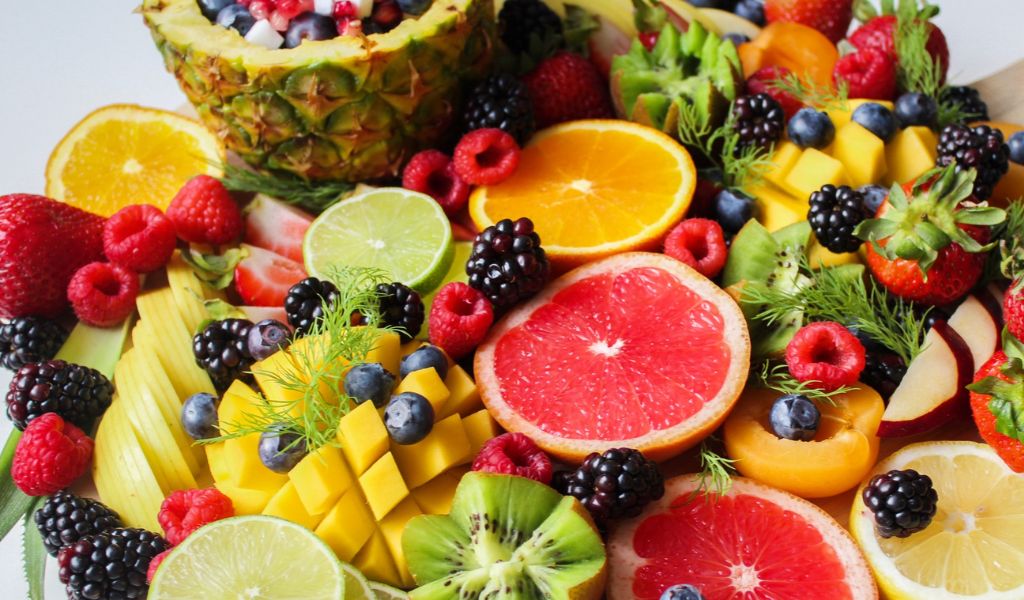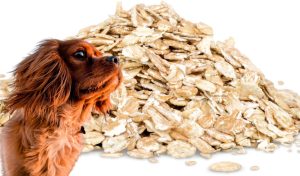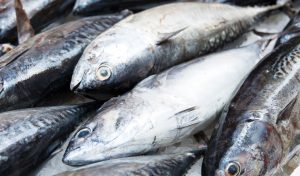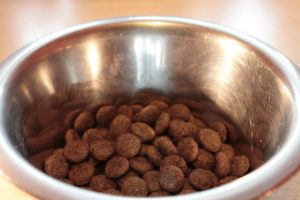Dogs are omnivores, meaning they can eat both meat and plant-based foods. While meat is the primary component of their diet, fruits and vegetables can also provide a range of nutritional benefits.
However, not all fruits are safe for dogs to eat, and some can even be toxic. As a pet owner, it is essential to know which fruits are safe and which ones to avoid when it comes to feeding your furry friend.
Yes, dogs can eat fruit in moderation. Many fruits are safe and even beneficial for dogs to eat, as they contain vitamins, minerals, and antioxidants that promote good health. However, some fruits can be harmful to dogs, and it’s essential to know which fruits are safe and which should be avoided.
Can Dogs Eat Fruit?
The short answer is yes, dogs can eat fruit.
Many fruits are safe and even beneficial for dogs, as they are rich in vitamins, minerals, and antioxidants.
However, it is crucial to introduce new fruits slowly and in moderation to avoid any digestive issues.
Moreover, some fruits are high in sugar, which can lead to obesity and other health problems if consumed in excess.
Safe Fruits for Dogs
Here are some fruits that are safe for dogs to eat:
Apples – Apples are an excellent source of fibre, vitamin C, and antioxidants. However, make sure to remove the seeds and core, as they can be choking hazards.
Bananas – Bananas are high in potassium, fibre, and vitamin C. They are also low in calories, making them an excellent treat for dogs.
Blueberries – Blueberries are rich in antioxidants and low in calories. They also contain vitamin C, fibre, and phytochemicals that can boost your dog’s immune system.
Oranges – Oranges are an excellent source of vitamin C, fibre, and potassium. However, only feed your dog the flesh of the orange, as the peel and seeds can be toxic.
Fruit Treats for Dogs
Fruits to Avoid
While many fruits are safe for dogs to eat, some are toxic and should be avoided at all costs.
Here are some fruits that you should not feed your dog:
Grapes and Raisins – Grapes and raisins can cause kidney failure in dogs. Even a small amount can be toxic and potentially life-threatening.
Avocado – Avocado contains persin, which can be toxic to dogs and cause vomiting, diarrhea, and difficulty breathing.
Cherries – Cherries contain cyanide, which can be toxic to dogs if consumed in large quantities. The stems and pits are also choking hazards.
Citrus fruits – While the flesh of oranges and other citrus fruits is safe for dogs, the peels and seeds can be toxic and cause digestive issues.
Benefits of fruit for dogs
- Improved Digestion – Fruits are an excellent source of fibre, which can improve digestion and prevent constipation.
- Boosted Immune System – Many fruits contain antioxidants, such as vitamin C, that can help boost your dog’s immune system and prevent diseases.
- Better Oral Health – Some fruits, such as apples, can help clean your dog’s teeth and freshen their breath.
- Increased Energy – Fruits are a natural source of energy and can help keep your dog active and alert.
Risks of fruit to dogs
- Allergies – Some dogs may be allergic to certain fruits, which can cause itching, rashes, and other allergic reactions.
- Digestive Issues – Introducing new fruits too quickly or feeding your dog too much fruit can lead to digestive issues such as diarrhea, vomiting, and stomach upset.
- Obesity – Some fruits are high in sugar, which can lead to weight gain and obesity if consumed in excess.
- Choking Hazards – Some fruits, contain pips and seeds that can be choking hazards and cause intestinal blockages.
How Much Fruit Should You Feed Your Dog?
When it comes to feeding your dog fruits, moderation is key.
While fruits can provide many nutritional benefits, they should only make up a small portion of your dog’s diet.
Here are some guidelines to follow when feeding your dog fruits:
Feed fruits in small amounts – Fruits should only make up 10% or less of your dog’s diet.
Choose safe fruits – Stick to safe fruits such as apples, bananas, blueberries, and oranges.
Introduce new fruits slowly – Introduce new fruits slowly, and monitor your dog for any signs of digestive issues or allergic reactions.
Remove seeds and pips – Always remove seeds and pips before feeding fruits to your dog.
Frequently Asked Questions (FAQs)
Is it safe to give my dog fruit every day?
No, it is not safe to give your dog fruit every day. Fruits should be given to dogs in moderation as they are high in natural sugars, which can lead to weight gain and digestive issues if consumed in excess.
Can dogs eat all parts of an apple?
No, dogs should not eat apple seeds or the core of the apple, as they contain traces of cyanide, which can be toxic to dogs. Always remove the seeds and core before giving your dog an apple.
Can dogs eat frozen fruit?
Yes, dogs can eat frozen fruit as a tasty and refreshing treat. Frozen fruits are especially great for dogs during hot summer months as they help to cool them down.
Can I give my dog fruit as a substitute for dog food?
No, fruit should not be used as a substitute for dog food. Fruits are a great addition to a dog’s diet but should not be the sole source of nutrition. Always feed your dog a balanced diet of high-quality dog food that meets their nutritional needs.
Can I give my dog fruit juice?
No, it is not recommended to give your dog fruit juice. Fruit juice often contains added sugars and artificial sweeteners that can be harmful to your dog. Additionally, fruit juice lacks the fibre and other nutrients found in whole fruits, making it less beneficial for your dog’s health.
Conclusion and final thoughts ?
In conclusion, fruits can be a great addition to a dog’s diet, providing them with essential nutrients, vitamins, and antioxidants.
However, it’s important to understand which fruits are safe and which should be avoided.
Always introduce new fruits in moderation, as too much fruit can cause digestive issues and weight gain.
Remember to remove any seeds, pips, or cores, and avoid giving your dog fruit juice.
As with any new food, it’s always best to consult with your veterinarian before introducing fruits to your dog’s diet.
By following these guidelines, you can safely incorporate a variety of fruits into your dog’s diet, keeping them healthy and happy for years to come.










